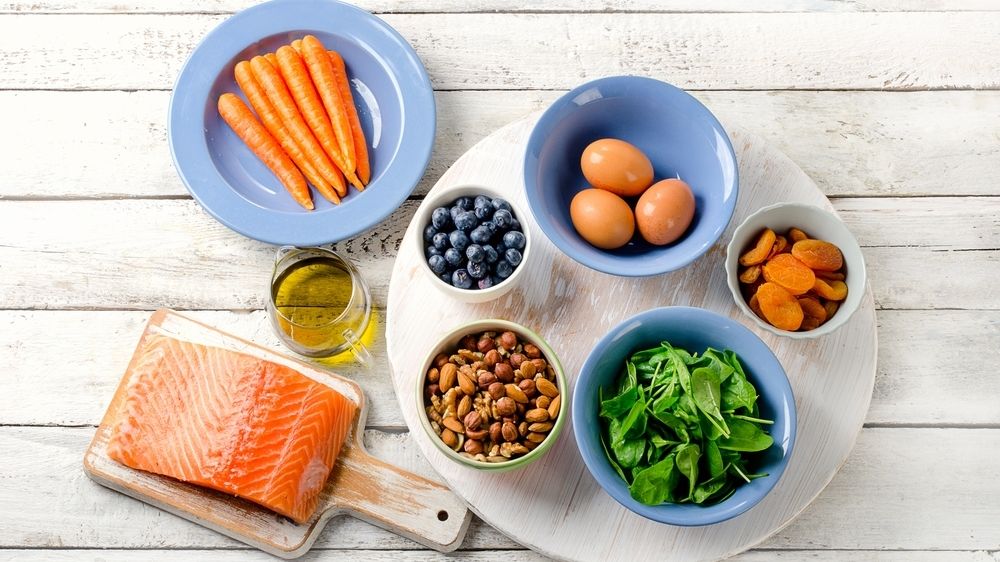Vitamin A (carrots, watermelon, apricots), vitamin E (legumes, bean sprouts cereal) and vitamin C (fruits and vegetables) are essential for the proper functioning of the eyes. Omega-3 fatty acids (fish), the minerals zinc (nuts, egg yolks) and selenium (tuna, garlic), the carotenoids lutein and zeaxanthin or mesozeaxanthin (leafy vegetables and berries) are also important.
All of these substances have a significant antioxidant effect, which means they neutralize free radicals and protect retinal cells from damage.
The number of children with eye disorders is increasing, tablets and smartphones are not the cause
Children and family
Prevention of macular degeneration and cataracts
Age-related macular degeneration is one of the most serious eye diseases, which is also the most common cause of blindness in people over 50 years old.
The macula is the central part of the retina which is responsible for central visual acuity. Mediates up to 90% of vision. One theory of the origin of this disease is that it is a result of oxidative and mild stress.
“Macular degeneration is caused, among other things, by free oxygen radicals, which we have managed to neutralize by increasing the intake of antioxidants, for example vitamins A, C, E and selenium,” explains Šárka Skorkovská, head of the NeoVize eye clinic in Brno.
However, long-term intake of vitamins C and E at a dose equivalent to one orange per day (75 mg) can also reduce the risk of developing cataracts. “Several global studies confirm the positive effects of increasing vitamin C intake both in the form of raw foods and foods with high vitamin C content. According to them, cataracts are diagnosed in people fed this way with a delay of up to three times the average of the general elderly population,” said Skorkovská.
Eva Jerhotová: Many diseases can be recognized by examining the retina
Health

Carrots will not cure defects, but they will still improve vision
Although dioptric eye disorders, such as nearsightedness, farsightedness, or astigmatism, and glaucoma cannot be influenced by diet, a proper diet can still improve these people’s vision. Therefore, there is also a reason for consuming carrots.
Carrots are rich in vitamin A which is healthy for the retina. Indirectly helps the quality of visual perception on the retina.
Other visual pigments (flavonoids, zeaxanthin, and lutein found in green leafy vegetables and corn) or unsaturated omega-3 fatty acids in fish oil provide similar benefits.
Eye yoga reduces eye fatigue and delays the need to wear glasses by several years
Health

But unfortunately, it doesn’t help that if you munch on a carrot or two every night, you’ll keep your eyesight sharp in old age.
“We should take care of our eyesight in cooperation with an ophthalmologist and carry out regular preventive examinations at least once every two years, more often after the age of forty,” recommends ophthalmologist Lucie Valešová.
Fat will help dry eyes
The problem of dry eyes can be overcome with foods rich in it
omega-3 fatty acids. It strengthens the tear film protection, which protects the eyes and prevents irritating dry eye symptoms.
If you suffer from this disease, include salmon, tuna, mackerel, anchovies, trout or flax seeds in your diet.
What other benefits are there for the eyes?
- onion
- garlic
- spinach
- tomato
- beet root
- carrot
- green salad
- Broccoli
- cabbage
- paprika
- blueberries
- cranberries
- raspberry
- Blackberries
- black currant
- orange
- Kiwi
- red grapefruit
- fatty sea fish
- eyelashes
- egg
- Crazy
- whole grains
- nuts etc.

“Certified bacon geek. Evil social media fanatic. Music practitioner. Communicator.”







